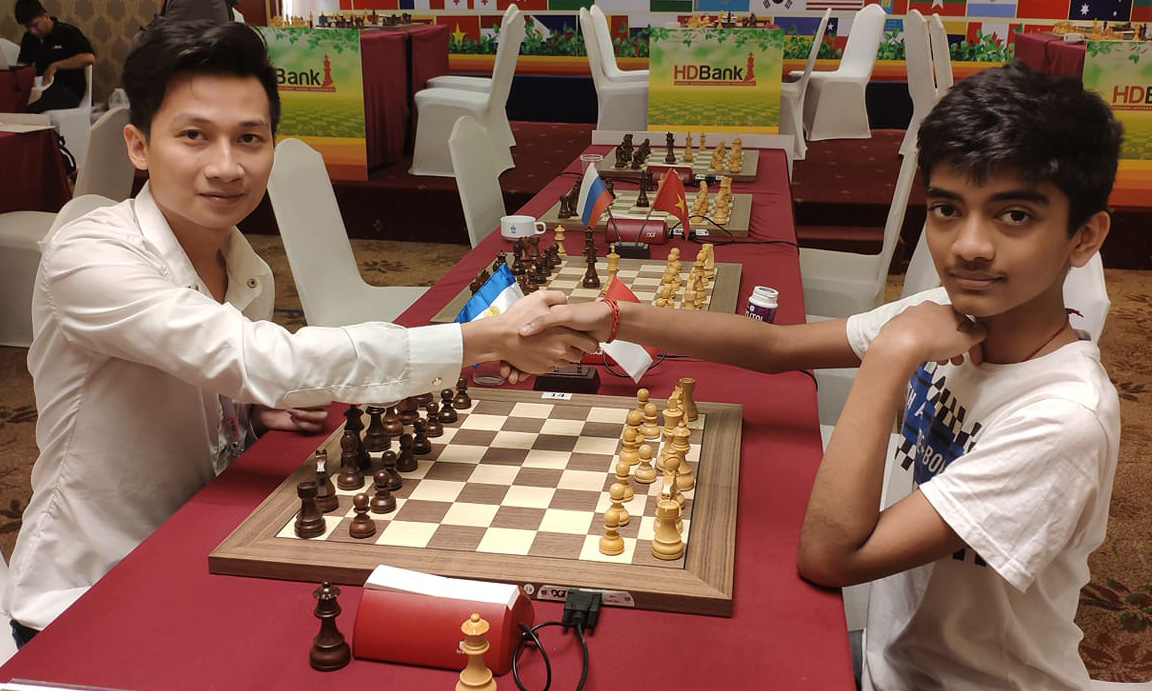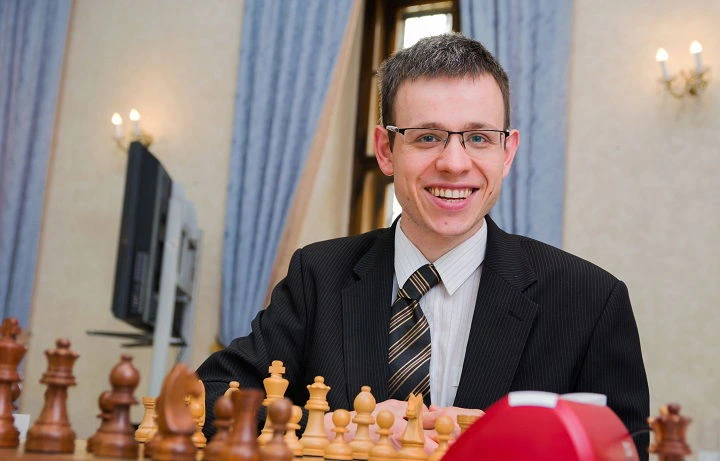David Navara once offered a draw while completely winning, and in another game apologised for playing too long after turning down a draw. That’s how nice he is.
The Czech grandmaster who has spent years hovering above a 2700 rating, is known as much for his character as his chess. His career contains moments of competitive brilliance, but also gestures that would be unthinkable for most at his level.
The Game That Defined Him
The story that cemented his reputation took place at the 2011 FIDE World Cup in Khanty-Mansiysk, Russia. Navara was facing Ukraine’s Alexander Moiseenko in the third round.
Midway through a tense game, Navara reached for his bishop and accidentally touched his king. Under FIDE’s “touch-move” rule, a player must move the piece they touch if a legal move exists. Moving the king would have ruined his position and almost certainly cost him the game.
Moiseenko could have insisted on enforcing the rule. Instead, understanding that the contact was accidental, he said “J’adoube”, which means “I adjust”, allowing Navara to continue without penalty. The match carried on. Hours later, Navara outplayed him completely, reaching a technically winning position.
Instead of converting his advantage, Navara looked across the board and offered a draw.
“I did not want to be referred to as an unethical chess player who managed to win in an unfair way,” Navara explained later. “That is why, having achieved the winning position, I offered a draw.”
Moiseenko accepted, stunned. “No one else would have done that,” he said afterward.
The governor of the Ugra region, Natalia Komarova, later introduced a special “Fair Play” prize for both men. It remains one of chess’s most famous examples of sportsmanship. It’s an act that cost Navara advancement, but earned him universal respect.
A Gentle Competitor
Navara’s sense of fairness goes far beyond one game. Players who’ve faced him describe someone who apologizes sincerely, even after winning.
Even in drawn games, the pattern persisted. Grandmaster Peter Svidler once recalled Navara declining a draw offer from Jan Gustafsson, saying gently, “If you don’t mind too much, I would like to continue.” When the game eventually ended in a draw, Navara apologized for taking up too much of Gustafsson’s time.
Standing Up Without Striking Back
In 2024, Navara faced one of the hardest moments of his career. Former world champion Vladimir Kramnik began an online campaign claiming that some grandmasters’ results showed signs of cheating. Though he never named Navara directly, many readers understood the implication.
The accusation was never proven, but it took a heavy emotional toll. Navara answered not with anger, but with reason. In a calm open letter, he explained where Kramnik’s statistics were wrong, described the anxiety the rumors had caused him, and made one simple plea for fairness and empathy.
“I believe that you, Mr. Kramnik, should be much more careful about publishing your statistics and accusations. You are causing harm to other people.”
In interviews afterward, Navara admitted that the episode had led to a period of depression, but said his focus was on protecting others from the same harm.
When former world champion Vladimir Kramnik faced criticism for his public dispute with the late Daniel Naroditsky, Navara called for calma. While thousands demanded Kramnik be stripped of his titles, Navara suggested just a fine. “Revoking titles is not a good idea,” he wrote in a Lichess discussion thread. “But perhaps FIDE could force him to pay his earnings from those matches to Danya’s family.”
The Philosophy Behind the Kindness
Navara has often spoken about where his empathy comes from. In a 2025 interview, he talked openly about living with Asperger’s syndrome, a condition on the autism spectrum. He explained that social awareness never came easily to him. His kindness, he said, was something he had to work at.
“I had to learn how to understand people better,” Navara said. “I wanted to have good relationships because it’s simply nicer to be friendly than unfriendly.”
That shows how he sees empathy as a deliberate choice. His humility follows the same pattern. He often downplays his ability, joking that he was “never good enough to reach the top five” and that he’s “forgotten everything” from studying mathematics and logic. When asked about Asperger’s being linked to “eccentric geniuses,” he smiled and said, “I’m not a genius myself.”
People who know him say the modesty is real, not for show. FM Carsten Hansen, reviewing Navara’s book My Chess World, wrote that the Czech grandmaster “is considered one of the few true gentlemen in top chess, always highlighting the play of others and humbly understating his own efforts.”
The Measure of a Man
Across more than two decades at the top level, Navara has proven that success and decency need not be opposites. His rating, his trophies, his longevity all are impressive. But his reputation rests on something different: a willingness to lose a point rather than compromise his values.
For Navara, kindness isn’t a weakness. It’s how he plays the game, one fair act at a time.

I’m Xuan Binh, the founder of Attacking Chess, and the Deputy Head of Communications at the Vietnam Chess Federation (VCF). My chess.com and lichess rating is above 2300. Send me a challenge or message via Lichess. Follow me on Twitter (X) or Facebook.

